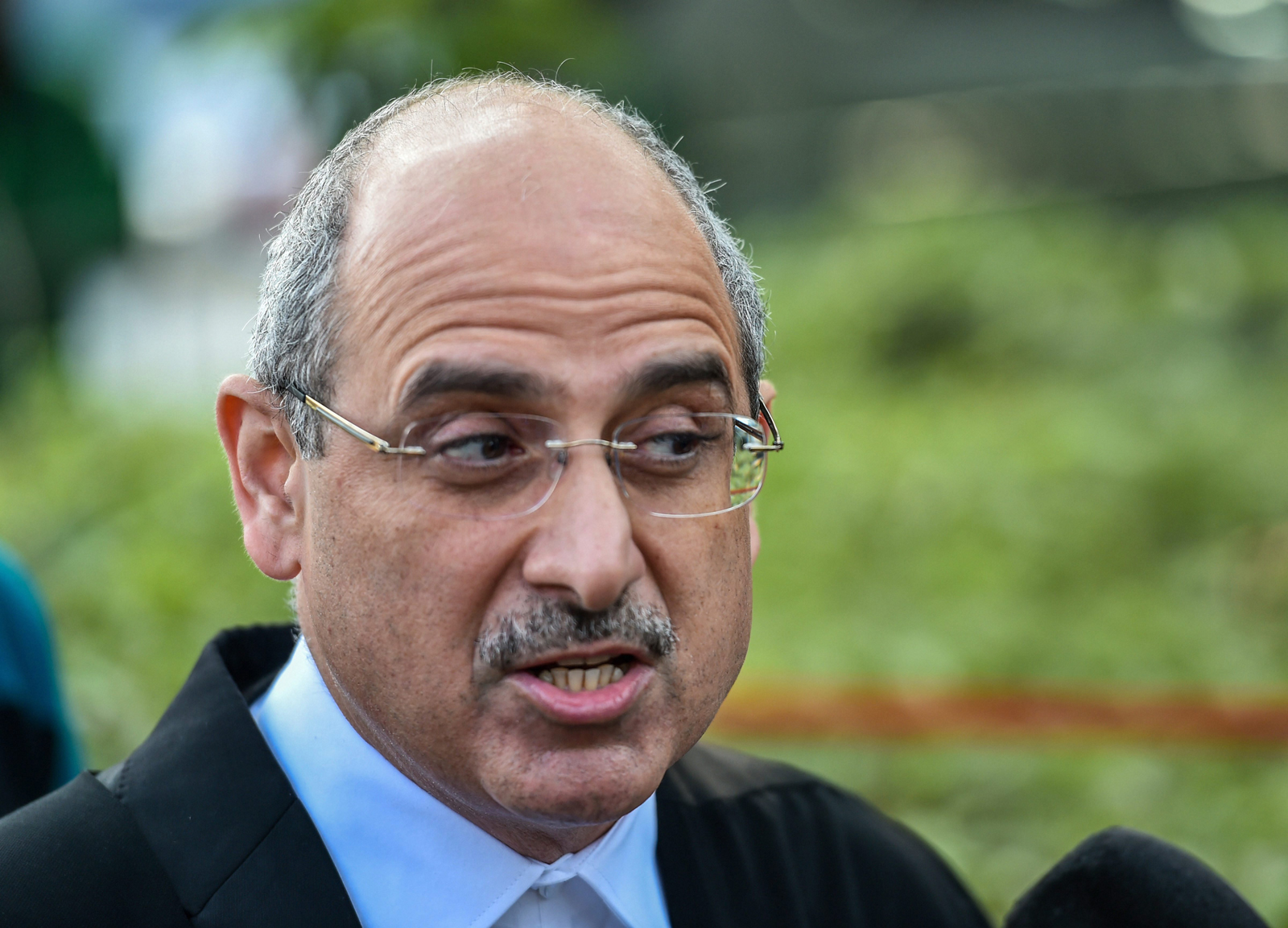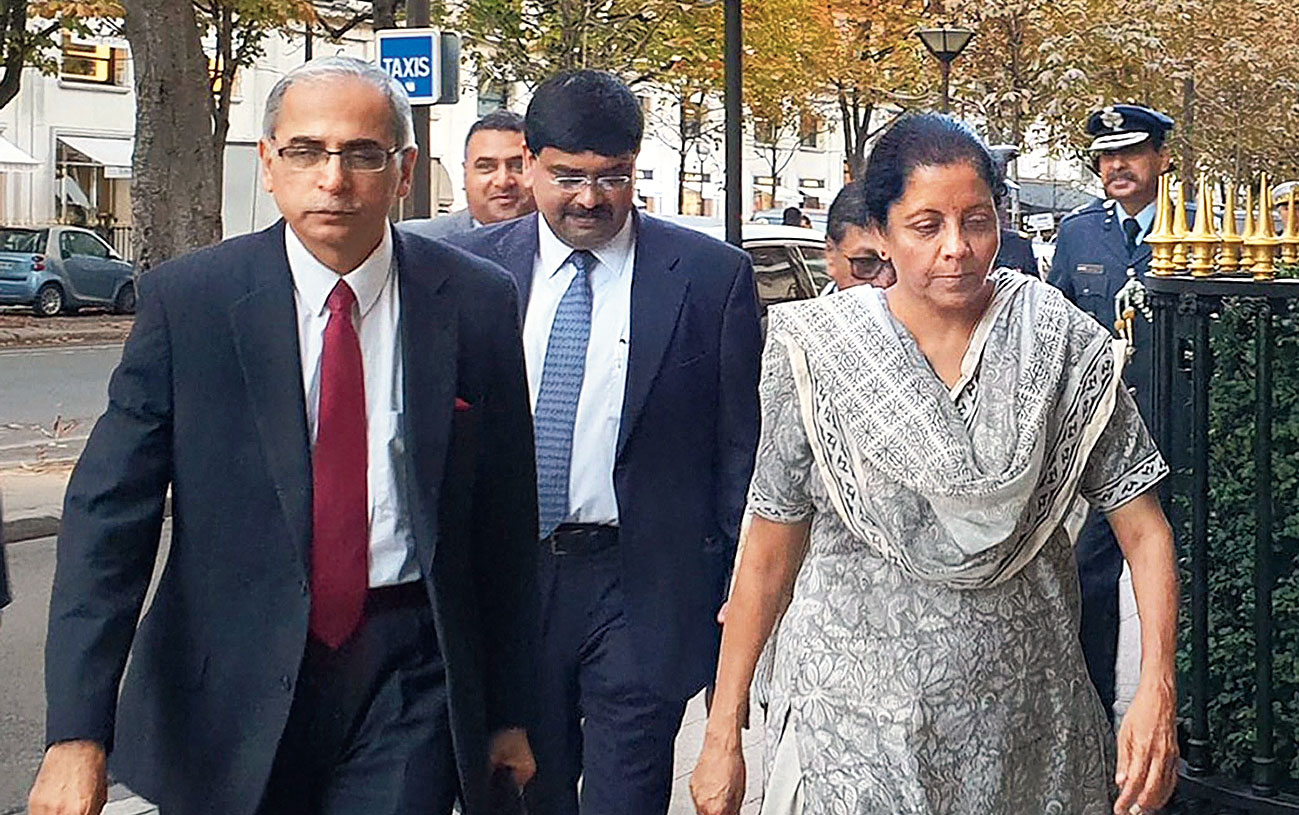The Supreme Court on Friday took a patriotic line while dismissing the pleas challenging the Rafale deal, saying “our country cannot afford to be unprepared/ under-prepared in a situation where our adversaries are stated to have acquired not only fourth-generation but even fifth-generation aircraft, of which we have none”.
The bench of Chief Justice Ranjan Gogoi and Justices Sanjay Kishan Kaul and K.M. Joseph exonerated the government on all three fronts of “decision-making process”, “pricing” and Reliance.
It refused to go into the details of the deal on the ground that “minor deviations” cannot be a ground for quashing a commercial contract undertaken in the national interest.
The government has been accused of agreeing to a much higher price per jet compared with the previous UPA plan that was scrapped. Prime Minister Narendra Modi has been charged with pressuring the French to give the offset contract to Anil Ambani’s Reliance, bypassing the public-sector HAL.
“It will not be correct for the court to sit as an appellate authority to scrutinise each aspect of the process of acquisition,” the Chief Justice, who wrote the judgment, said.
Since Rafale is a defence deal it should be subjected to a different degree and depth of judicial review, the court ruled, deciding the decision-making process could therefore not be doubted.
“We are satisfied that there is no occasion to really doubt the process and if minor deviations have occurred, that would not result in either setting aside the contract or requiring a detailed scrutiny (by) the court,” the court said.
The bench said that due process had “broadly” been followed and highlighted that even the petitioners had not questioned the need for the aircraft or their quality.
“We find no reason for any intervention by this court on the sensitive issue of (the) purchase of 36 defence aircraft by the Indian government. Perception of individuals cannot be the basis of a fishing and roving enquiry by this court, especially in such matters,” the judgment said.
The apex court refused to go into the technicalities or legalities of the tender process, which the petitioners had alleged had been tailored to favour Anil Ambani’s company.
“Adequate military strength and capability to discourage and withstand external aggression and to protect the sovereignty and integrity of India, undoubtedly, is a matter of utmost concern for the nation. The empowerment of defence forces with adequate technology and material support is therefore a matter of vital importance,” the judgment said.
“We also cannot lose sight of the tender in issue. The tender is not for construction of roads, bridges, etc. It is a defence tender for procurement of aircraft. The parameter of scrutiny would give far more leeway to the government keeping in mind the nature of the procurement itself.”
It added: “It is neither appropriate nor within the experience of this court to step into this arena of what is technically feasible or not.”
The bench highlighted that although the process for the purchase was concluded on September 23, the petitioners had not challenged it until recently.
It said the petitioners had acted only on the basis of former French President Francois Hollande’s reported statement, which said the Indian government had proposed the offset partner’s name. It stressed that Rafale maker Dassault, the French government and Reliance had denied Hollande’s claim.
“We do not consider it necessary to dwell further into this issue or to seek clausebyclause compliances,” Justice Gogoi wrote.
The apex court accepted that Reliance Aerostructure had come into being in the recent past but added that the (government) media release suggested there was possibly an arrangement between the parent Reliance company and Dassault since 2012.
“As to what transpired between the two corporate (houses) would be a matter best left to them, being matters of commercial interests,” the bench said.
The apex court said the three grounds on which such judicial scrutiny is permissible had been consistently held to be “illegality”, “irrationality” and “procedural impropriety”.
“It is our considered opinion/ view that the extent of permissible judicial review in matters of contracts, procurement, etc, would vary with the subject matter of the contract and there cannot be any uniform standard or depth of judicial review which could be understood as an across-the-board principle to apply to all cases of award or work or procurement of goods/ material,” the judgment said.
“The scrutiny of the challenges before us, therefore, will have to be made keeping in mind the confines of national security, the subject of the procurement being crucial to the nation’s sovereignty.
“In none of the writ petitions the suitability of the fighter jets and (their) utility to the Indian Air Force has been called into question. Rather, what was doubted by the petitioners is the bona fides of the decision-making process and the price/ cost of the equipment at which it was proposed to be acquired.”











